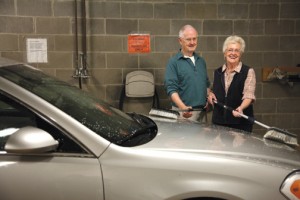 Senior housing cooperatives are much more than housing developments. Cooperatives embody a set of humanistic standards and principles that are as important in their success — and the satisfaction of their member-owners — as their physical structures.
Senior housing cooperatives are much more than housing developments. Cooperatives embody a set of humanistic standards and principles that are as important in their success — and the satisfaction of their member-owners — as their physical structures.
And it is these principles that have stimulated growth of cooperatives in the upper Midwest at a rate far greater than other forms of senior independent living.
The following principles of senior cooperative housing have been endorsed by the Senior Cooperative Foundation, a nonprofit organization that supports development of and best practices for senior housing cooperatives, and which has created this website to help people understand the benefits of senior cooperative living.
Senior Cooperative Housing is:
1. Community
A cooperative is a community that is greater than the sum of its individual parts and works to protect its members in all possible respects: financial, physical and social. It is the dedication of the individual to the cooperative that creates a community vibrant enough to fulfill these needs.
2. Ownership
The members collectively own all aspects of the cooperative and run it in their own best interests, both as a community and as individuals. Those involved in cooperative development and management need to recognize this as distinct from other housing types and respond accordingly. This differs from other housing types in that members have made a choice to come together to act collectively rather than as disparate individuals.
3. Caring
The underlying basis for senior housing cooperatives should be an ethic of caring which puts the well-being of the members above other considerations. It must be woven into the very fabric of the cooperative from the beginning, starting with development and finance and continuing through the day-to-day life of the cooperative.
4. Education
Everyone involved in the development and marketing of the cooperative should know cooperatives and be committed to what they do and how they do it. Education about essential functions, such as roles and responsibilities, and about essential skills, such as facilitation and mediation, should happen early and often.
5. Communication
Successful cooperatives have strong communication. Communication is both a structure and process that is consistently cultivated in order to create and support community as well as to contribute to the actual business of running a cooperative.
6. Shared Responsibility, Especially Financial
The financial structure of a cooperative enhances community and stability by all members having the same relative interest in the well-being of the cooperative and working together to ensure it, through shared ideals and instruments such as a shared mortgage and reserves, operations and maintenance budgets. The shared financial structure of the cooperative is the basic framework that energizes the creation and intensification of community. It should always work to reinforce community rather than be a source of confusion or conflict.
7. Fair
Cooperatives must be fair and transparent. The structure encourages this and it is up to the members and managers to maintain this ethic and develop it further. All members have an equal interest in the success of the cooperative. They enjoy an equal voice within the cooperative, are equally able to contribute to the well-being of the cooperative and enjoy the same chance to contribute.
8. Participation and Involvement
Senior housing cooperatives are successful because the structure encourages involvement by most, if not all, the members. Strong boards of directors and managers facilitate effective and abundant interactions within the cooperative, thereby supporting a vibrant community.
9. Good Design
Cooperatives are designed to facilitate community through their barrier-free design and the quality and abundance of common spaces. Good design also means quality construction which keeps costs low and satisfaction high. As owners, members create the spaces that support the way they want to live.
10. People First
Cooperatives are about meeting the varied needs of the members, as defined by the members themselves, which allows for true responsiveness to the individual versus a homogeneous or institutional response.
11. Dedication
As with any worthwhile endeavor, cooperation needs to be cultivated and nurtured. This takes energy, patience and understanding, but the returns are invaluable.
12. Empowerment
Cooperative members have diverse and extensive expertise in a multitude of areas. The cooperative structure encourages continued growth and application of this expertise for the improvement of the community.

